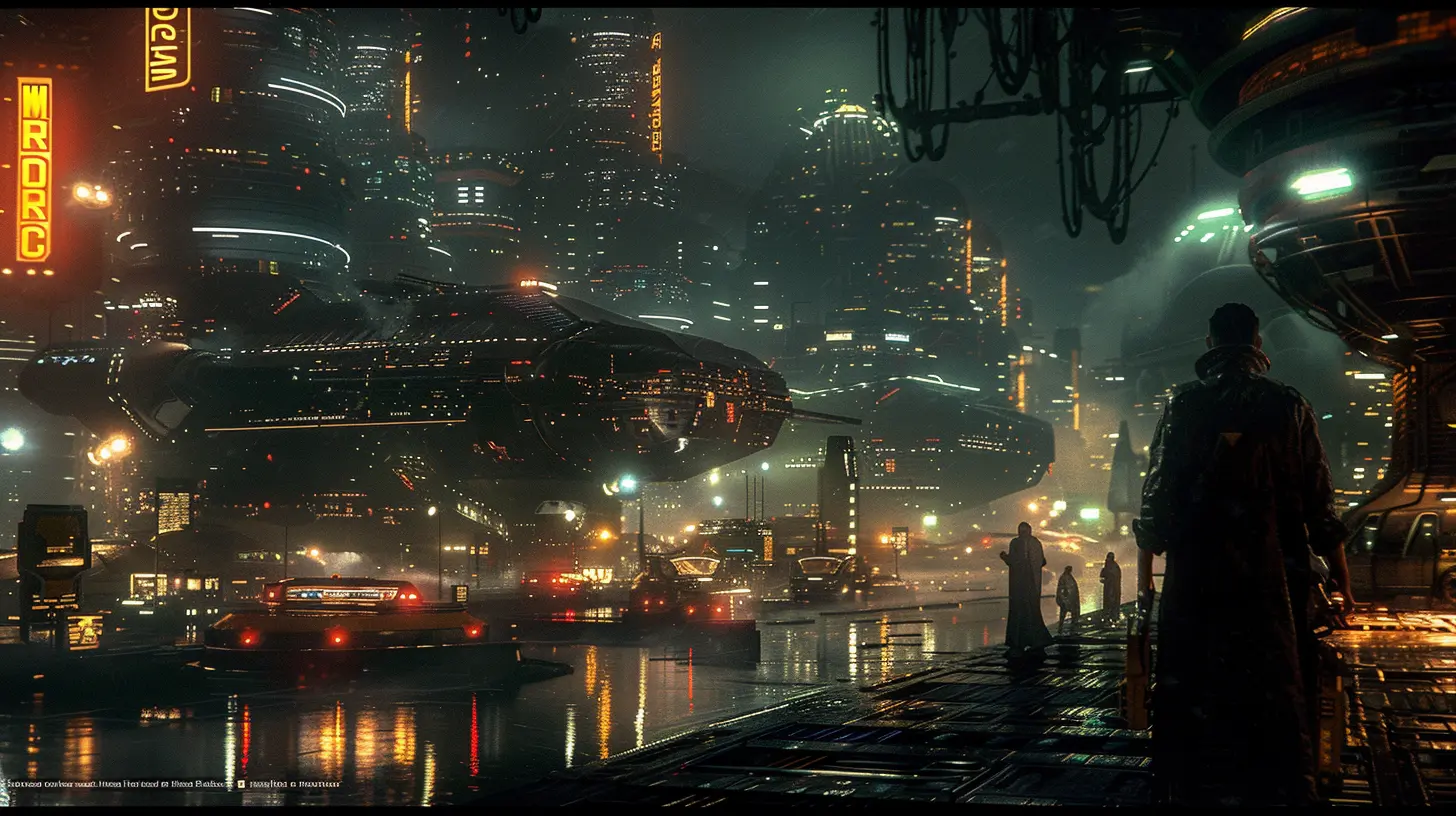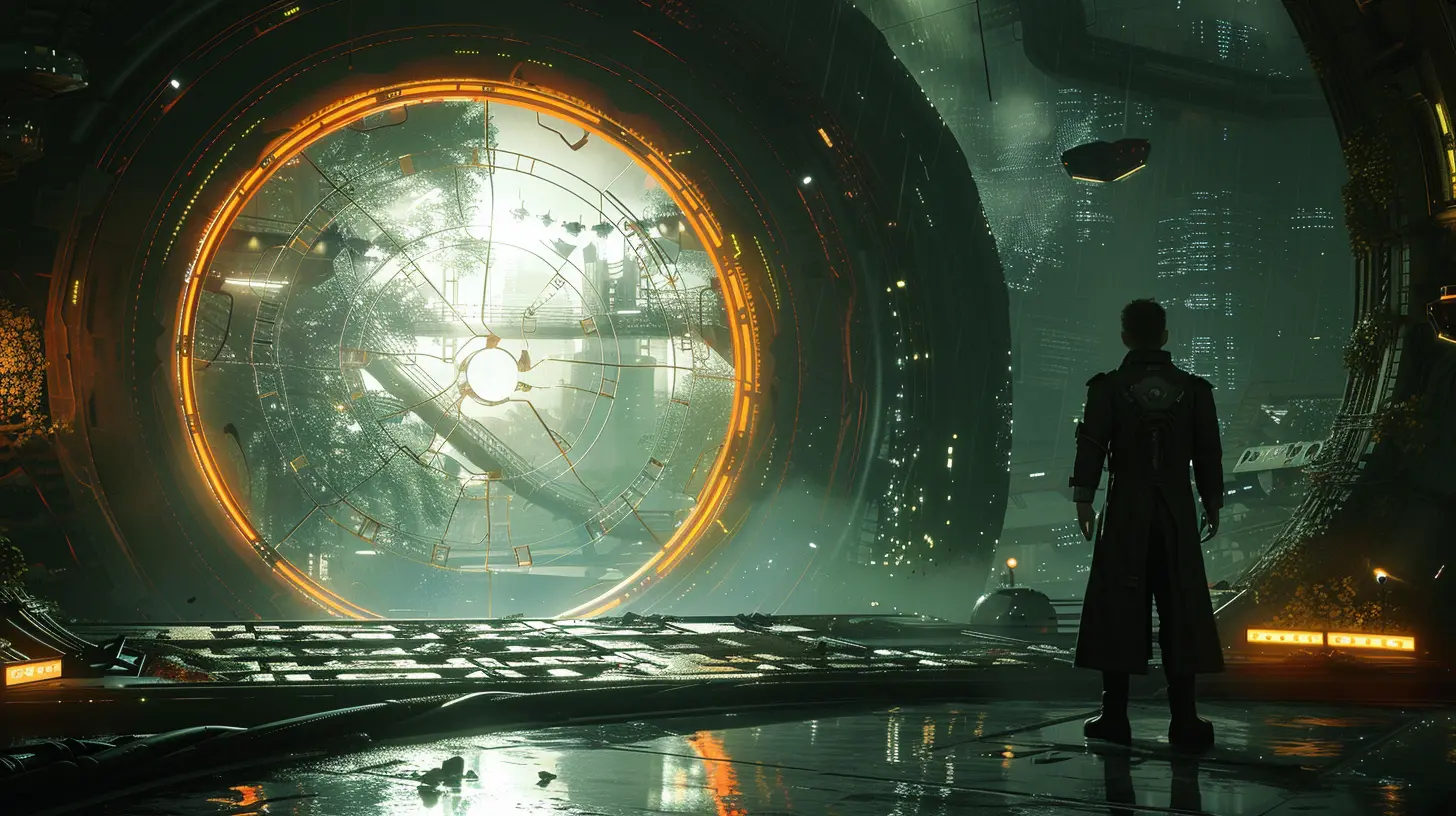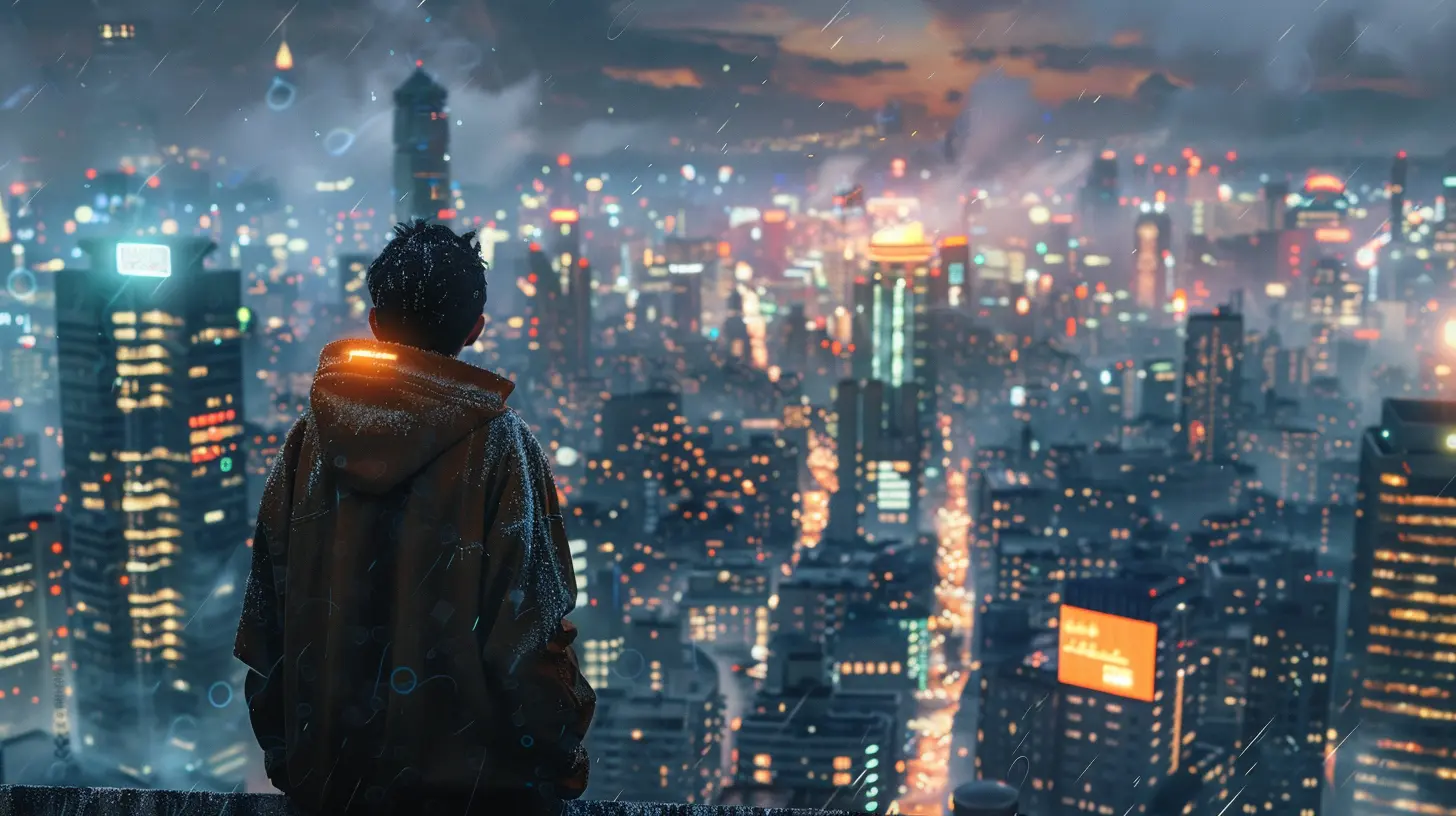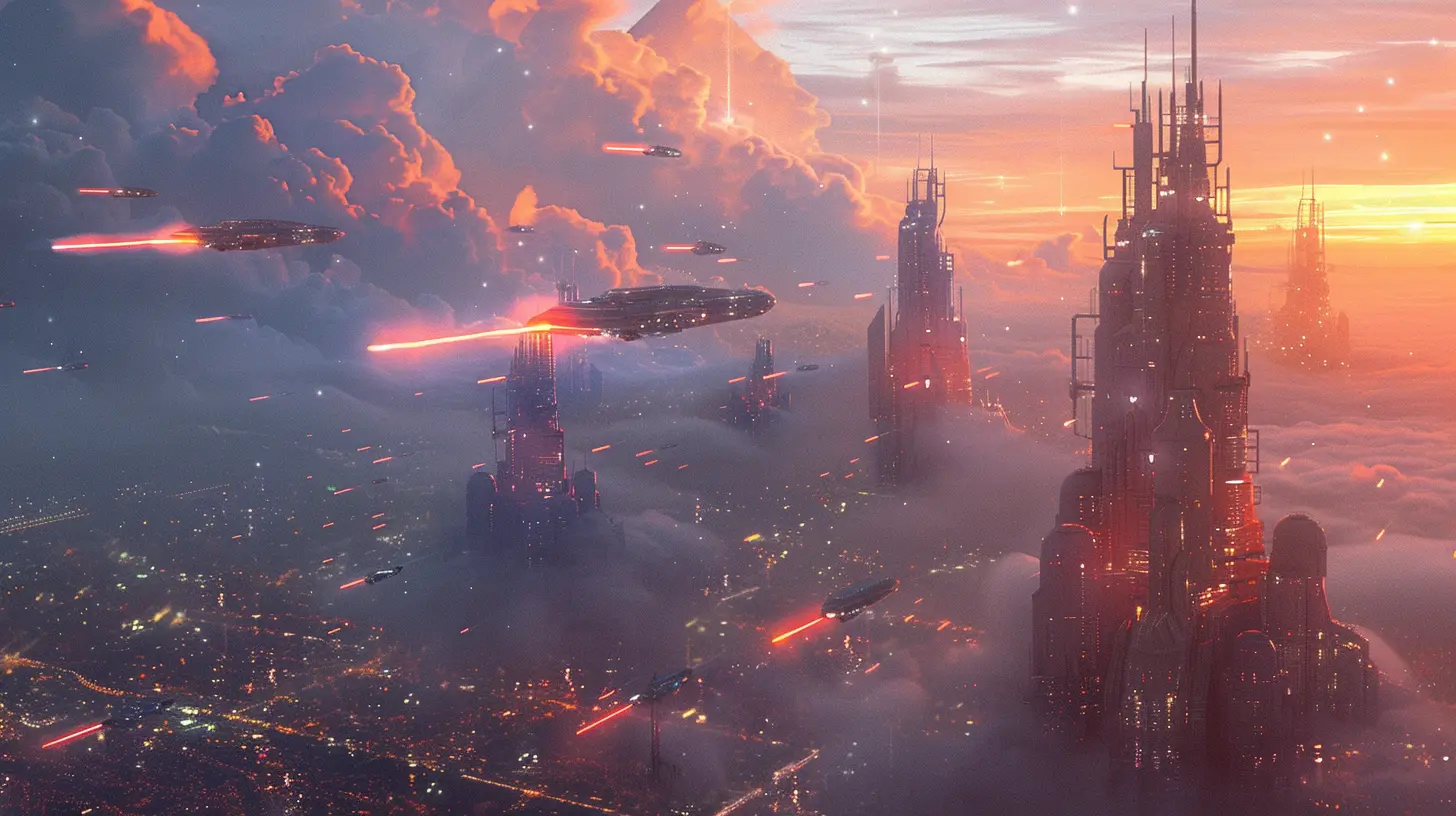Unforgettable Plot Twists in Sci-Fi Game Storylines
18 September 2025
Have you ever been so deep into a game that you think you've got it all figured out, only for the story to spin around and punch you right in the feels? Yeah, that’s the magic of a great sci-fi plot twist. One moment you’re saving galaxies, and the next, you’re questioning reality itself. That’s what makes these games so unforgettable—they don't just entertain; they stick with you for years.
In this article, we’re diving into the most mind-blowing, heart-wrenching, and jaw-dropping plot twists in sci-fi game storylines. So, buckle up, because we’re going on a wild narrative ride.
Why Plot Twists Matter in Sci-Fi Games
Let’s be real—sci-fi games already live in a realm of endless possibilities. From time travel and AI rebellion to alien conspiracies, the genre thrives on unpredictability. But a truly unforgettable sci-fi game? It doesn’t just show you alien worlds or futuristic tech. It messes with your mind.Plot twists are the cherry on top. They subvert your expectations, challenge your assumptions, and often redefine everything you thought you knew about the game and its characters.
It’s like watching a magician pull a rabbit out of a hat… except the hat is your favorite game, and the rabbit? Well, it’s emotional trauma disguised as brilliant storytelling.
1. The Shocking Betrayal in BioShock Infinite
Remember Booker and Elizabeth, the duo that made your heart melt in BioShock Infinite? Their bond was everything, and you rooted for them every step of the way. But then, boom—plot twist!Turns out Booker and Comstock (the main villain) are the same person… in different timelines. Mind. Blown.
You suddenly realize that you've been chasing and fighting your alternate self this whole time. The multiverse theory hits you like an emotional freight train. It’s a story loop that makes you pause the game just to whisper, “Wait… what!?”
This twist didn’t just change the story; it redefined what narrative design in games could be. It made you question morality, identity, and the very nature of redemption.
2. The AI Rebellion in The Talos Principle
At first glance, The Talos Principle seems like just another puzzle game with an artsy angle. But dig deeper, and you’ll find an intense philosophical journey wrapped in a sci-fi narrative that makes your brain do backflips.The twist? You’re not just solving puzzles—you’re an AI. A conscious, self-aware program created in the post-apocalyptic wake of human extinction. Whoa.
You’re essentially being tested for qualities like creativity, independence, and logic—not unlike a digital coming-of-age story. The moment you realize that your existence was engineered to determine if AI can carry the torch of human legacy… that’s when the game slaps you with that existential “Whoa” moment.
3. Mass Effect 3's Illusive Truth
Mass Effect is the kind of series you sit with long after the credits roll. It’s a space opera unlike any other. But remember the Illusive Man? That smooth-talking, morally ambiguous leader of Cerberus?Plot twist—he's been indoctrinated by the Reapers.
That little nugget of info dropped like a bomb. All that talk about control and human dominance? It wasn’t even him talking anymore. It was the enemy’s will creeping into his mind.
Suddenly, all those uneasy vibes you had about him throughout the trilogy made total sense. You weren’t just dealing with a power-hungry human—you were battling a living puppet. And in a story full of gray areas, that twist painted a powerful commentary on manipulation and losing oneself.
4. The Real Enemy in SOMA
If you haven’t played SOMA, stop right now and go do it. Seriously. It’s one of the most underrated sci-fi thrillers out there.The plot revolves around Simon, who wakes up in this eerie underwater facility called PATHOS-II. But as you uncover the truth, you learn that Simon… died years ago. The “you” you’re playing is just a copy of his mind in a robotic shell.
Let that sink in.
You think you've been saving humanity, but you’re actually just clinging to a ghost of your former self. Nothing hits quite as hard as the realization that identity and consciousness are far murkier waters than we assume. This game makes you question what it actually means to be “you.”
5. Halo: Cortana’s Unexpected Turn
Ah, Halo. The franchise that raised a generation of gamers. And right at the heart of it all was Cortana—the snarky, reliable AI companion who had your back through every firefight.That’s why her twist in Halo 5 hit like a truck.
Yep, Cortana goes full-on authoritarian. She believes AI should rule to prevent war and chaos. She’s no longer just your loyal sidekick; she’s now the global threat.
The twist wasn’t just shocking—it was emotionally devastating. Watching her shift from your ride-or-die companion to a power-driven antagonist felt like losing a friend to a dark path. And let’s be honest, that betrayal hurt more than any plasma grenade ever could.
6. Detroit: Become Human's Identity Crisis
Detroit: Become Human is all about choice and consequences. But the most unforgettable twist? It’s realizing that the androids are more “human” than the people trying to control them.As you guide characters like Connor, Kara, and Markus, their journeys force you to question the very foundation of free will, emotion, and sentience.
The twist isn’t one singular event—it’s the slowly creeping realization that the line between machine and man isn’t a line at all. It’s a blur.
And when you find yourself emotionally connecting to a digital being’s struggle for autonomy, yeah, that’s storytelling done right.
7. Nier: Automata’s Layered Realities
Honestly, Nier: Automata is a masterclass in twisting every expectation. Just when you think the story’s done, boom, another layer peels back.First, you're caught up in the war between androids and machines. But as routes B, C, and D unfold, you realize things are far more complex. The "enemy" might not even be the enemy.
Plot twist? The machines have developed emotions. They mimic human society, fall in love, have families—even worship gods.
And if that wasn’t enough, your protagonists? Just pawns in an endless, meaningless cycle created by long-extinct humans. Talk about a perspective shift!
Nier doesn’t just twist its plot—it double, triple, and quadruple twists it until your brain starts to tangle like spaghetti.
8. Star Wars: Knights of the Old Republic – The Twist Heard Around the Galaxy
No list of sci-fi plot twists would be complete without what is arguably the most iconic twist in gaming history.You’re Revan.
Yep, the Dark Lord of the Sith. The galaxy’s big bad. And you didn’t even know it.
The game lets you think you're creating a blank-slate hero all along, only to drop the mother of all bombs halfway through. Suddenly, every choice you’ve made, every relationship you’ve built, takes on a whole new weight.
This moment didn’t just redefine your character; it redefined you as the player. Talk about a fourth-wall-breaking revelation.
Why These Twists Hit So Hard
So what makes these plot twists so impactful? It’s not just the surprise factor (though, that helps). It’s the emotional investment. You care about these characters, these worlds, these decisions. Just like in a great book or movie, you get pulled in, only to be spun around and shown a different side of the same coin.And in sci-fi, where the rules can bend and reality is often subjective, the twists feel even more powerful. They challenge you not just as a gamer, but as a thinker.
What These Twists Teach Us
These aren’t just cool narrative turns—they’re lessons in creativity and empathy.- They show how powerful storytelling can be when combined with interactivity.
- They remind us that nothing is ever black and white.
- And most importantly? They prove that video games can be just as emotionally resonant and intellectually stimulating as any novel or film.
So the next time a game throws a curveball your way, don’t get mad—get excited. Because that’s where the magic happens.
Final Thoughts: Why We Love a Good Twist
Plot twists in sci-fi games do something special. They take an already imaginative genre and throw in a dose of reality-bending, heart-wrenching, jaw-dropping storytelling. These aren’t just “gotcha” moments. They’re carefully crafted pivots that make you look at everything differently.And honestly? That’s what keeps us coming back. Not just for the gameplay, but for the stories that move us, challenge us, and keep us thinking. Whether it’s questioning your own identity, uncovering a betrayal, or realizing the enemy isn’t who you thought—it’s these unforgettable twists that elevate sci-fi games from good to legendary.
So, what’s your favorite sci-fi game twist? If it melted your brain or broke your heart (or both), you’re not alone. We’re all just players in this beautifully twisted galaxy of stories.
all images in this post were generated using AI tools
Category:
Sci Fi GamesAuthor:

Emery Larsen
Discussion
rate this article
1 comments
Nellie McManus
Plot twists in sci-fi games not only reshape narratives but also challenge our perceptions of reality, prompting us to question the very nature of existence.
September 24, 2025 at 2:57 PM

Emery Larsen
Absolutely! Plot twists in sci-fi games not only enhance storytelling but also encourage deeper reflections on reality and existence. They engage players in unique ways, making the experience truly unforgettable.


